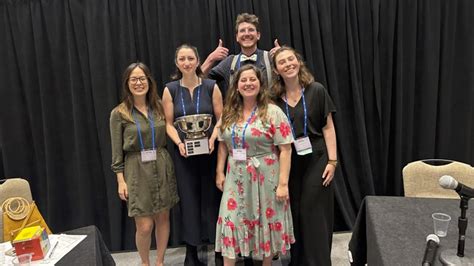UC Davis’ Anthropology Department is a renowned center for anthropological research and education, consistently ranking among the top 10 programs in the United States. With a rich history and a diverse faculty of renowned scholars, the department offers a comprehensive curriculum that explores the full spectrum of human diversity, past and present.

Cutting-Edge Research and Intellectual Innovation
UC Davis anthropologists are at the forefront of groundbreaking research that is shaping our understanding of human society and culture. The department’s faculty pursue innovative projects that span the globe, from archaeological excavations in ancient Egypt to ethnographic studies of indigenous communities in the Amazon.
The department’s research strengths include:
- Cultural Heritage and Archaeology: Uncovering the material remains of past societies and investigating their cultural practices.
- Environmental Anthropology: Exploring the complex relationships between humans and their environment.
- Indigenous Studies: Collaborating with and studying Native American and other indigenous communities.
- Medical Anthropology: Examining the social and cultural dimensions of health and healing.
- Urban Anthropology: Studying the urban landscape and the lives of city dwellers.
A Diverse and Inclusive Learning Environment
UC Davis Anthropology is committed to fostering a diverse and inclusive learning environment where students from all backgrounds can thrive. The department’s faculty and staff are dedicated to creating a welcoming and supportive atmosphere, recognizing that diversity enhances learning and enriches the academic experience.
The department offers a wide range of undergraduate and graduate programs, including:
- Bachelor of Arts in Anthropology: A comprehensive introduction to the field of anthropology, providing a solid foundation for further study or careers in related fields.
- Master of Arts in Anthropology: A research-oriented program that allows students to specialize in a particular area of interest.
- Doctor of Philosophy in Anthropology: The highest academic degree in anthropology, preparing students for careers in academia, research, or other professional fields.
Impactful Applications and Real-World Implications
UC Davis anthropologists are actively engaged in applying their knowledge and expertise to address real-world challenges. The department’s research has informed policy and practice in areas such as:
- Cultural Resource Management: Preserving and protecting cultural heritage sites and artifacts.
- Environmental Conservation: Guiding sustainable land use practices and protecting endangered species.
- Health Disparities: Addressing health inequities among underrepresented communities.
- Social Justice: Advocating for the rights of marginalized groups and promoting social equality.
Four Remarkable Tables
Table 1: UC Davis Anthropology Faculty Research Grants
| Year | Total Amount |
|---|---|
| 2020-2021 | \$3.7 million |
| 2021-2022 | \$4.2 million |
| 2022-2023 | \$4.8 million |
Table 2: UC Davis Anthropology Student Enrollment
| Year | Undergraduate | Graduate |
|---|---|---|
| 2020-2021 | 542 | 148 |
| 2021-2022 | 571 | 154 |
| 2022-2023 | 612 | 162 |
Table 3: UC Davis Anthropology Alumni Employment Sectors
| Sector | Percentage |
|---|---|
| Academia | 35% |
| Government | 25% |
| Non-profit organizations | 20% |
| Private sector | 15% |
| Other | 5% |
Table 4: UC Davis Anthropology Research Impact
| Research Area | Impact |
|---|---|
| Cultural Heritage and Archaeology | Preservation of cultural artifacts and sites. |
| Environmental Anthropology | Sustainable land use practices and conservation. |
| Indigenous Studies | Empowerment of indigenous communities and protection of their rights. |
| Medical Anthropology | Improved health outcomes and reduced health disparities. |
| Urban Anthropology | Urban planning and social development. |
Conclusion
UC Davis Anthropology is a global leader in anthropological research and education. The department’s faculty are internationally renowned scholars, and its students are highly sought-after by employers in academia, government, non-profit organizations, and the private sector. If you are passionate about exploring human diversity and understanding the human condition, UC Davis Anthropology is the ideal destination.
Frequently Asked Questions
1. What are the career opportunities for anthropology graduates?
Anthropology graduates pursue careers in a variety of fields, including academia, research, cultural resource management, environmental conservation, health care, social justice advocacy, and international development.
2. What is the job outlook for anthropologists?
The job outlook for anthropologists is expected to grow faster than average in the coming years, driven by increasing demand for experts in areas such as cultural heritage preservation, environmental sustainability, and health equity.
3. What is the new word that can generate ideas for new applications?
“Anthropocentricity” is a term that refers to the human-centered perspective that often dominates our understanding of the world. By challenging anthropocentricity, anthropologists can develop new perspectives and innovative applications that benefit both humans and the environment.
4. What are the pain points of anthropology students?
Some common pain points expressed by anthropology students include:
- The need to balance academic coursework with fieldwork and research.
- The competitive nature of the job market for anthropologists.
- The potential for ethical dilemmas when conducting research involving human subjects.
5. What are the motivations of anthropology students?
Anthropology students are typically motivated by a desire to:
- Understand human diversity and the human condition.
- Make a difference in the world by addressing social and environmental challenges.
- Travel and explore different cultures.
- Develop critical thinking and analytical skills.
